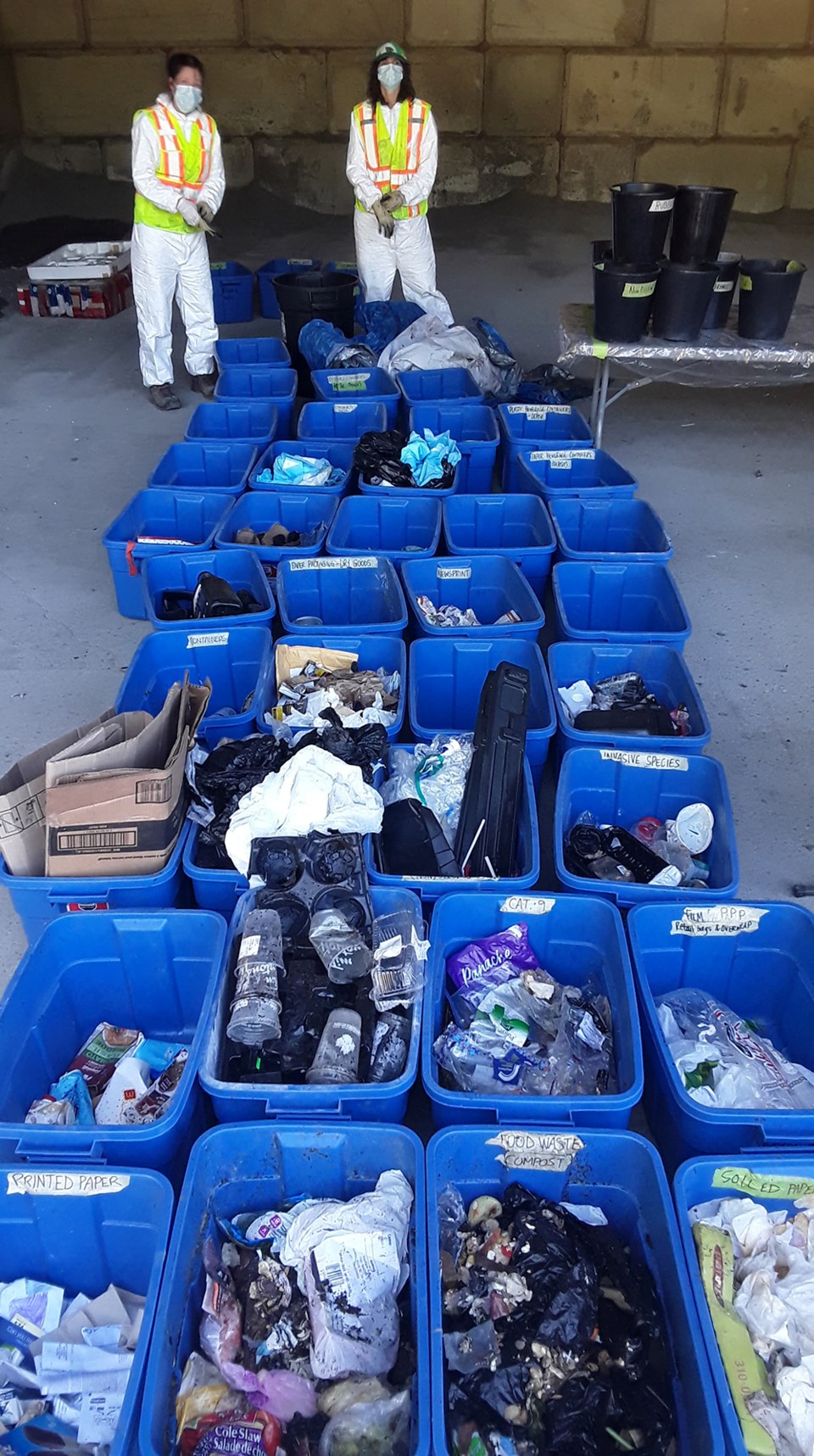After enjoying some takeout on the waterfront at sunset, you wouldn’t trash the beach with your to-go containers or napkins.
Going the step further from sand to garbage can is considered the “right” choice, and yet we can aim far higher than avoiding littering. Take a peak in any waste bin from a local park to the average household and you’ll find more than 70 per cent of the materials could have found another home. So, what’s in your trash?
In BC, we are fortunate to have many reuse and recycling options that may not be offered in other provinces. Thrift stores and building material ReStores are ever more valuable in our changing access to cheaply made foreign goods and construction materials. Add to these the 22 producer-paid recycling programs, including food packaging, car tires, household batteries, engine oil and paint, and we start to whittle down our trash can’s diet. Many families are finding ways to compost their kitchen scraps and yard and garden waste as well, be it in their own backyard, through a community composting program, or a friend’s hungry composter.
Prepare for success
Most of us want to do the right thing and foster a sustainable relationship with the planet’s limited resources like oil, paper and metals. Moving from this intention into action requires some effort on our part. Your household can set itself up for success with a basic sorting system for recycling along with a kitchen catcher for food scraps.
In short, unsorted waste is sordid. Remnants of food slopped over bits of paper and otherwise recyclable electronics is not only gross but also a guarantee those items will end up in the landfill. Your system can be elegant or bare bones, but without it your home is more than likely losing an easy opportunity to trim down its waste.
A simple set of bins or boxes stacked in a convenient spot is a great start. You can hide it in plain sight by placing it in a chest or dresser. For those with curbside recycling, you can collect paper recycling in the same bin as food containers made of metal, plastic or plastic-lined paper.
Other household recycling needs to be dropped off at a recycling depot, so collect glass food containers, polystyrene packaging, plastic bags, household batteries, pens, cork, electronics and small appliances separately for delivery to receiving depots. Glass, polystyrene and plastic bags are not accepted in curbside recycling bins because they either break apart and contaminate recycling loads, or get tangled in sorting equipment at processing facilities.
Remember, not all plastic is created equal, so if you’re in doubt about where to place something, check out the Waste Wizard search engine for our region on City of Powell River’s website.
In short, compostable plastics are not accepted in our recycling or composting pilot program, so they are garbage. Plastic bags and overwrap (bread bags, grocery store bags and toilet paper roll covers) recyclables go together in one stream and “other flexible plastic packaging” (mesh onion bags, plastic only snack packaging and anything with a zipper lock) needs to be collected separately. Having two bags in your household sorting bin for these reduces the headache of separating out on depot run days.
With our closest receiving landfill located across the border in Washington State, we have extra motivation to be responsible with sorting out our waste before it gets trashed. A quick online search can inspire creative upcycled sorting stations for any budget and household.
Let’s Talk Trash is qathet Regional District’s (qRD) waste-reduction education program. For more information, email [email protected] or go to LetsTalkTrash.ca.





